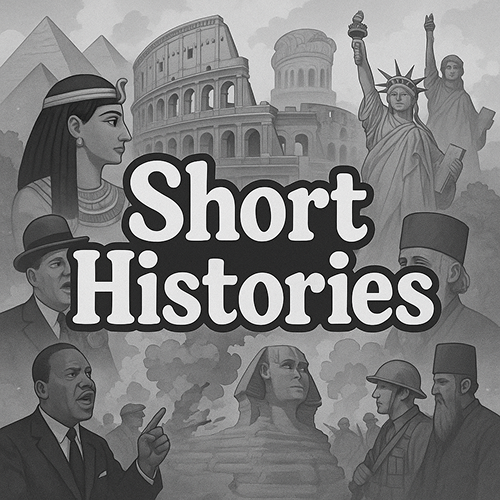A name is more than a word. It is a story in miniature, a map of ancestry, a declaration of hope, and sometimes, a prophecy in disguise. From the dawn of civilization to the scrolling feeds of today’s social networks, names have anchored us to tribes, legacies, and destinies far larger than ourselves.
We think we own our names but in truth, they often own us.
The Invention of Surnames: From Need to Nobility
It wasn’t always so. For centuries, most people lived with a single name simple, functional, local. John the Smith. Mary of the Hill. Yet as villages grew into towns, and towns into kingdoms, this proved insufficient. Bureaucracies needed clarity. Tax collectors, census-takers, and kings demanded order. Thus, the surname was born.
In England, surnames became law under Edward I’s reign for taxation purposes. In China, family names stretch back thousands of years, rooted in clans and dynasties. The Romans famously used tria nomina, three names, to signal social rank, family, and personal identity: Gaius Julius Caesar.
Across Europe, surnames often sprang from four origins:
- Occupation: Smith, Baker, Archer
- Location: Hill, Rivers, Atwood
- Patronymic: Johnson (son of John), O’Connor (descendant of Connor/ Of Connor) and MacAllister/McAnthony (Scottish and Irish surnames that begin with "Mc" or "Mac" are derived from the Gaelic word "mac," which means "son of.")
- Characteristic: Small, Short and Armstrong.
What began as practicality soon ossified into prestige.
Monarchies & Papacies: Naming Power, Naming Time
Kings and popes understood names were not mere labels but legacies etched into history. Dynastic titles marked eras as clearly as wars or plagues. Louis XIV of France didn’t just rule; he became The Sun King. Each monarch’s name was a banner beneath which generations marched. Successions became synonymous with epochs: Tudor, Stuart, Habsburg, Bourbon, Ptolemy, Qing.
Even today, the Papacy follows this tradition. Upon elevation, a pope sheds his birth name to adopt one steeped in history Francis, Benedict, John Paul, Leo. A signal not just of tenure but intent, philosophy, and lineage within the Church’s eternal narrative. The weight of a name here is almost divine.
The Arabian Tapestry: Lineage Woven in Words
In Arab cultures, the name is a genealogy in miniature. The use of Ibn (“son of”) or Bint (“daughter of”) traces bloodlines across generations: Ibn Sina - son of Sina, Ibn Khaldun - son of Khaldun. These chains stretch deep into ancestry, binding identity to forebears long gone. Even among modern Arabs, full formal names can run long, reciting paternal lineage like a poem of belonging: Ali ibn Ahmed ibn Hassan ibn Suleiman Al-Bukhari.
It is heritage as identity, a name not merely spoken but remembered.
Spanish, Portuguese, and African Traditions: Multiplicity as Meaning
In Spain and Portugal, names sprawl across generations, embracing both maternal and paternal lines. A child might carry four surnames, a living family tree stitched together in ink. For example: Maria Garcia Lopez Rodriguez. Each segment tells a story of father, mother, grandparents, history.
In West Africa, names carry weight beyond lineage. As a matter of fact, they hold power. Among the Yoruba of Nigeria, children receive elaborate names, sometimes dozens, each imbued with hope, prayer, or protection: Ayotunde - joy has returned, Babajide - father has returned, Temitope - mine is worthy of thanks
A name here is not a marker but a magnet for fate. Naming ceremonies span days, elders weighing the spirit of a child, the omens of their birth, the history of their clan. In Ghana, day names like Kofi for Friday, Afia for Friday-born girls root individuals in cosmic rhythm.
These aren’t labels, they are compasses for life.
Names That Move Empires: Rothschild, Rockefeller, and the Invisible Hand
Not all names wander freely. Some sit at the heart of whispered conspiracies, their weight bending economies and shaping nations. Rothschild. Rockefeller.
These names became shorthand for dynastic wealth, synonymous with shadowy influence and the machinery of capitalism. The Rothschild banking family, stretching from Frankfurt to London and beyond, built a financial empire so vast it was said they funded both sides of wars.
The Rockefellers, from oil to philanthropy, became architects of American industrial might. Their name adorns skyscrapers, universities, foundations. Where kings minted coins, these families minted power.
To conspiracy theorists, they pull strings unseen. To historians, they reflect the modern era’s new monarchy: wealth.
The Psychology of a Name
Names shape perception. Studies reveal people with “easier to pronounce” surnames often receive better job offers; First impressions are inked in letters. A child named Destiny carries expectations, a boy named Hunter conjures a different archetype than Ezekiel.
In Japan, thousands legally change names yearly to escape debt, stigma, or dishonor. In the West, celebrities rebrand themselves into marketable myths: Stefani Germanotta became Lady Gaga, Marshall Mathers became Eminem and Reginald Dwight became Elton John.
A name can close doors or open stages.
Echoes Still Heard
Today, algorithms sort us by names. Credit systems, social media, background checks. Yet behind these data points are echoes: of ancestors hoping to be remembered, of dynasties building thrones from signatures, of cultures believing a name isn’t given lightly, it’s inherited.
Even now, to change a name is no small thing. Marriage, divorce, adoption, courts recognize this as identity itself being rewritten.
We end where we began: with words that outlive us.
Your name is your first inheritance.
Your legacy is how it’s remembered.
Next Time: Transatlantic Slave Trade Part One | Chains Across the Sea
How Greed, Guns, and Gold Shaped the Largest Forced Migration in History...
Please go back to top & scroll gently

